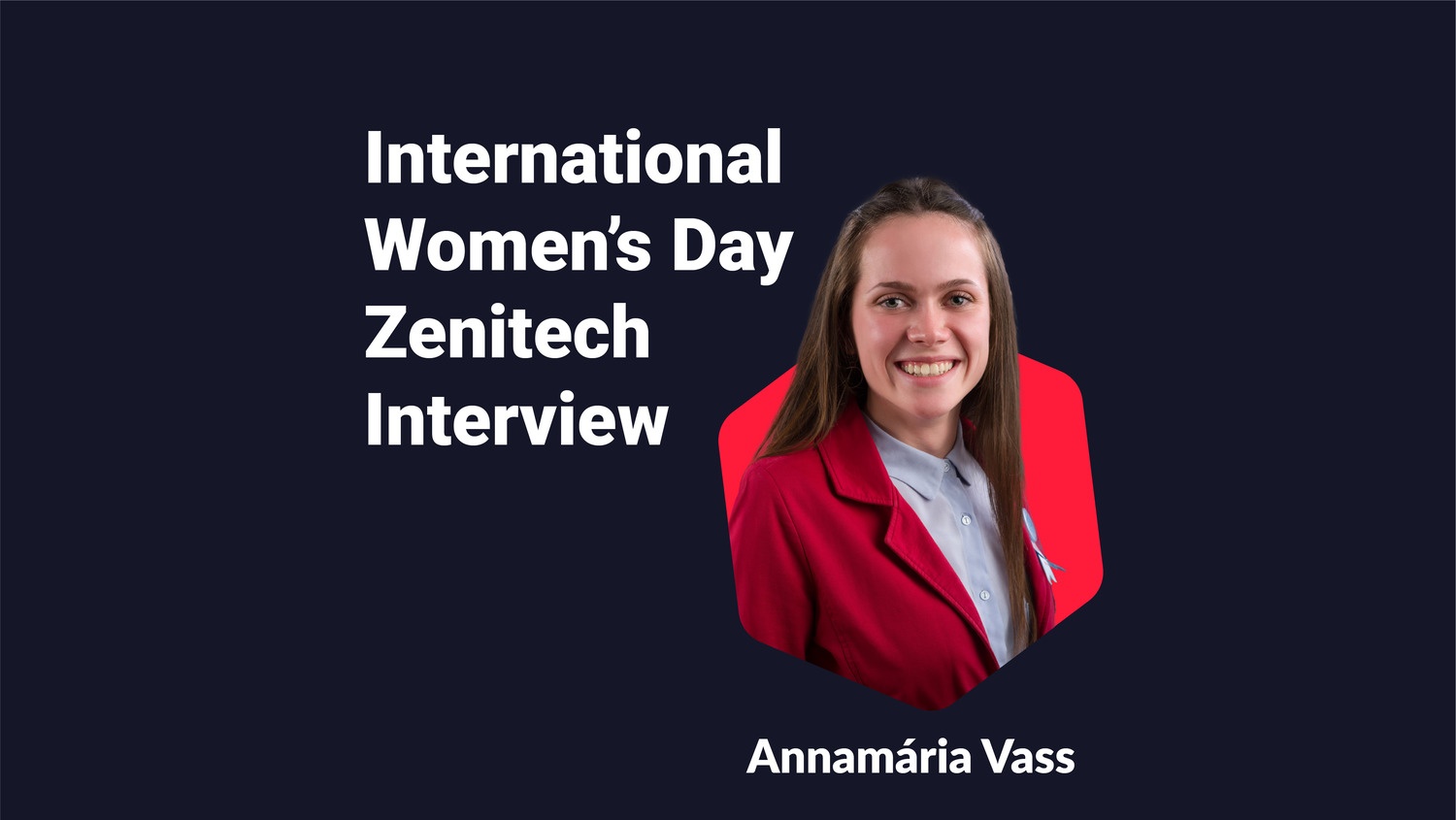An Interview with Annamária Vass on breaking barriers and empowering Women in Technology
This year’s International Women’s Day is about inspiring inclusion. What better way to celebrate and inspire other women than to speak to the next generation of female tech talent?
Lucy Dodd (Chief People Officer) had the pleasure of meeting student Annamária Vass, studying at the Budapest University of Technology and Economics. In 2022, Zenitech acquired AutSoft, which had a long-standing relationship with the University. As part of Zenitech’s growth plans, it saw enormous potential to work with the university pipelining talent into the business.
“The Budapest University of Technology and Economics is seeing an increasing number of female applicants to fields that were previously male-dominated, such as Computer Science. It is evident that during project laboratories, students willingly form mixed-gender teams, as diverse approaches bring more creativity, different perspectives, and complementary attitudes to collaborative work. A recent internal student survey revealed that female students greatly appreciate the special treatment and attention from their male peers.”
Bertalan Forstner, Global Head of Innovation & Communities, Zenitech
Associate Professor, Deputy Head of Department (BME)
Further research has also shown that female students are more likely to pursue careers in STEM fields if they have female role models as teachers. A study published in Science magazine found that female students who female science teachers taught performed better and were more likely to pursue careers in STEM fields compared to those taught by male teachers.
Lucy: Tell us a bit about yourself.
Annamária: I was born and raised in Transylvania, Romania, where I attended high school. I then moved to Hungary to study Computer Engineering at the Budapest University of Technology and Economics. My favourite subjects from an early age were Mathematics and Physics, and I discovered my passion for programming and informatics in high school.
I finished my Bachelor’s degree in January at BME and started my Master’s as a Computer Engineer. Currently, I live in Barcelona, studying data science at the Universitat Politècnica de Catalunya, and spending an Erasmus semester here.
Lucy: This year’s International Women’s Day theme is ‘Inspire inclusion’. What does this mean to you?
Annamária: It means that diversity and representation are significant in every sphere of life, including the tech industry.
I have experienced the impact inclusivity can have from a positive perspective. In high school, many of my teachers were women in STEM subjects, which was inspiring. It is important to have female role models.
Lucy: Have you faced any barriers during your education due to being a woman?
Annamária: Fortunately, I have never encountered any barriers during my studies due to being a woman. It is increasingly common and accepted for women to be present in the computer science and technological fields. During my internship, my teachers, classmates, and colleagues always treated me with respect. Talking about my positive experience will hopefully inspire others. I have been fortunate, but I know I was lucky as it is not the same for everyone, and work still needs to be done.
Lucy: What do you consider the most significant challenge to women in technology right now?
Annamária: One of the most significant challenges for women in technology remains the persistent gender gap, especially in leadership and technical roles. Educating people is crucial to overcome barriers such as unconscious bias. Creating inclusive workplace cultures will encourage more young girls to pursue STEM education and readdress the balance.
Lucy: What advice would you give to other young women considering studying technology?
Annamária: My most important advice would be: don’t be afraid to pursue a career in technology. Choosing this path has been one of my best decisions—it allows me to follow my passion and has led me to form meaningful friendships.
Despite being in a male-dominated field, I’ve found deeper connections with fellow female students. Fortunately, STEM fields are becoming increasingly popular among girls, and inclusivity is gaining importance. For example, at BME, they participate in an annual event called Girl’s Day, where young females can explore the many career opportunities in technology.
Lucy: If you could have dinner with three inspirational women, dead or alive, who would they be and why?
Annamária: The first woman that comes to my mind is Katalin Karikó, the first Hungarian woman to earn a Nobel Prize in 2023. She is best known for her contributions to mRNA technology and the development of COVID-19 vaccines.
My second choice would be Ada Lovelace, whose work laid the foundation for modern computer programming. Her story is very inspiring to me, given that she made groundbreaking contributions to computing before the invention of the computer itself. The third dinner guest would be Marie Curie, who made remarkable contributions to science as a woman while challenging the gender norms of her time. Her work is incredible, and her determination to pursue her desired education is admirable.
